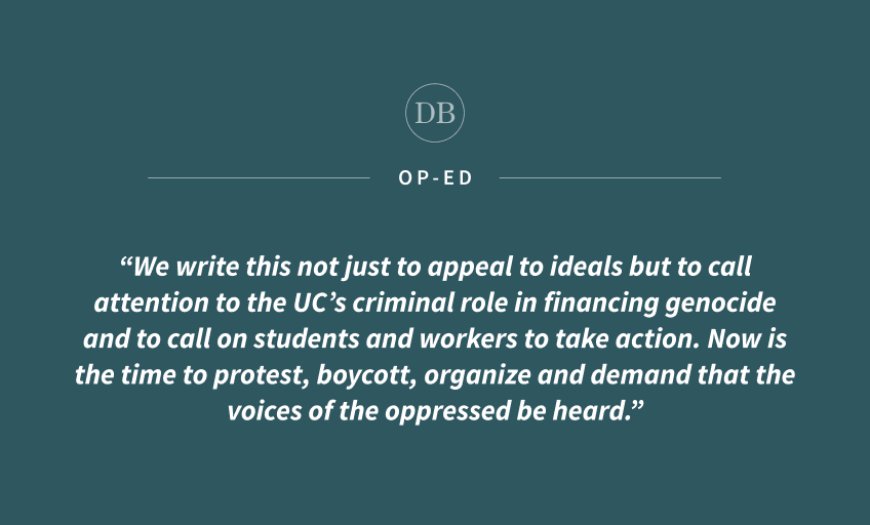UCLA's Complicity in Palestinian Genocide: Unveiling the University's Disturbing Connections
Explore the controversial op-ed by Graduate Students for Justice in Palestine at UCLA, accusing the university of complicity in the alleged genocide of Palestinians. Uncover the claims, controversies, and the call to action against UCLA's financial ties. A critical examination of the university's role in funding military activities raises questions about accountability and ethical responsibilities.

The op-ed by Graduate Students for Justice in Palestine at UCLA claims that the university is complicit in the alleged genocide of Palestinians. The accusations shed light on UCLA's financial connections to military-industrial giants and its potential role in funding the ongoing humanitarian crisis.
Escalating Crisis: Humanitarian Catastrophe in Gaza
The op-ed paints a grim picture of the situation in Gaza, with over 11,000 Palestinians reportedly murdered by the Israeli military. Allegations include the cutting off of essential supplies, blackout incidents, and catastrophic conditions, highlighting a dire humanitarian crisis that has caught the attention of global human rights organizations.
Historical Context: From Nakba to Present-Day Apartheid
The article traces the roots of the conflict, rejecting the notion that recent events mark the start of violence. Instead, it presents the October 7 incident as the latest phase in a project of ethnic cleansing that dates back to the Nakba of 1948. The settler colony of Israel, rooted in European imperialism, is accused of perpetuating a system of apartheid and discriminatory practices against Palestinians.
UCLA's Alleged Complicity: Financial Connections and Accountability
The op-ed points fingers at UCLA's financial ties to BlackRock, a major player in the military-industrial complex. The university's investments in companies such as Boeing, Lockheed Martin, Raytheon, Northrop Grumman, and General Dynamics, allegedly totaling over $2 billion, raise questions about ethical responsibilities and accountability. The accusation is that these companies manufacture the weapons used by the Israeli state against Palestinians.
Silencing Dissent: Backlash Against Palestinian Solidarity
The article claims that students speaking out in solidarity with Palestinians face various forms of silencing, including internal removals from positions and physical assaults. It also highlights instances of alleged censorship, where university Listservs are prohibited from disseminating information about Palestine-related events.
UC's Role in Global Imperialism: UC Divest Coalition and Collective Action
The op-ed portrays the UC system as a key player in global imperialism, funding war and oppression. The UC Divest Coalition emerges as a collective force challenging the university's financial and political interests. The article contends that Palestine is a litmus test for democratic rights and human empathy, emphasizing the interconnectedness of struggles for freedom worldwide.
The Call to Action: Protest, Boycott, and Demand Change
Despite alleged attempts to silence voices of solidarity, the op-ed concludes with a call to action. Students and workers are urged to protest, boycott, organize, and demand accountability from institutions like UCLA. The article contends that UCLA's financial and political interests supersede moral considerations, urging readers to scrutinize the university's role in funding what the op-ed terms as genocide.
In a climate of heightened activism and growing awareness, the op-ed raises crucial questions about the responsibility of educational institutions, inviting readers to critically examine the ethical dimensions of university investments and their potential impact on global conflicts.







